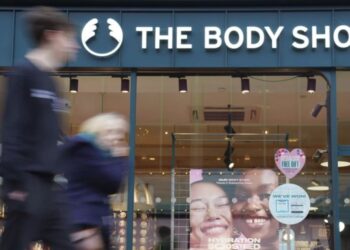Bain Capital snaps up Esure, the insurance firm that owns the Sheilas’ Wheels brand, in a £1.2bn takeover deal which suggests further consolidations in the industry.
In a statement, Esure Board said it was pleased to have reached an agreement with Bain Capital on the terms of a recommended cash offer.
As a result and under the terms of the proposed acquisition, each Esure shareholder will be entitled to receive 280p in cash for each Esure share held. This represents a premium of approximately 37% to the closing price per Esure share of 204 pence on 10 August 2018 (this being the last business day prior to the possible offer announcement released by Esure on 13 August 2018)
Chairman Sir Peter Wood, Esure largest shareholder, supported the Bain Capital deal and he is set to earn £371 million from it. Speaking to Reuters, Wood said “It is very good for all my colleagues, all the employees because Bain Capital are going to grow the business and invest heavily,”
He will remain Chairman of the group after the takeover and will reinvest £50 million.
Wood with a £150m investment from Halifax bank launched the online insurer Esure.com during the dot-com boom in 2001. After a management buy-out in 2010, the insurer became an independent company and listed as Esure Group Plc. in London in March 2013 at 290 pence per share.
The company provides insurance products to more than two million homeowners, drivers, holidaymakers, and pet owners across the UK.
Earlier, the insurer released its interim results for the first half year of 2018, which showed pre-tax profits falling 20% from £45.1m to £36.1m.
Darren Ogden, Interim Chief Executive Officer, said: “The first half of 2018 has seen continued growth in premiums and polices in a period impacted by exceptional weather costs … and these contributed to exceptional costs of £14m in the Home and Motor accounts.”
Luca Bassi, managing director of Bain Capital Europe, feels that Esure will grow positively, given its adept and focused way of working, and the way it puts technology to its best use. Insurance providers who operate from advanced technology says Bassi, are in the best position to drive customer satisfaction at competitive prices and that too, at a profit.
Insurance industry in troubles
However, the Esure 20% drop in profits this year is not unique among insurers. In fact, several of them have reported record losses due to an unusual spate of claims because of natural calamities and a series of regulatory updates and effects of Solvency II, the European Union (EU) initiative to introduce a solvency system better matched to the risks of insurers.
Few others are restructuring their operations by participating in mergers and acquisitions (M&A) with their non-performing or under-performing entities. In October 2017, Bermuda-based AXIS Capital acquired Novae Group in a £478 million ($615m), creating an insurer and reinsurer with $6 billion in gross written premium globally and $2 billion in London, making it a top ten insurer and reinsurer at Lloyd’s of London.
Earlier this year, giant French insurer AXA acquired the XL Group (aka XL Catlin), one of the leading global Property & Casualty commercial lines insurers and reinsurers in a £12 billion ($15.3bn) deal. Under the terms of the transaction, XL Group shareholders received £43.20 ($57.60) per share.
XL reported losses exceeding $1 billion for the 2017 third quarter, blaming natural catastrophe Hurricanes Harvey, Irma and Maria for the results. XL CEO, Mike McGavick revealed that the events had a “significant” impact on XL Group’s financial results for the quarter.
Moody’s, in a report, noted that the insured catastrophe losses in the third quarter of 2017 might turn out to be among the highest in the past two decades. Nonetheless, it added that insurers and reinsurers are sufficiently well capitalized to absorb the losses, albeit depleting their capital reserve.
Consolidations and InsurTech
Low interest rates, EU new regulatory updates such as the GDPR (General Data Protection Regulation), and natural catastrophe events are all contributing to the insurance business cycle downwards phase.
Many governments around the world introduced “Quantitative Easing” (Central banks increasing the money supply) and reduced the interest rates at record lows to fight off the 2008 recession. This affected insurers, who have struggled to make decent returns from the investments they must hold to cover potential claims.
Bermuda-based reinsurer Validus Holdings reported it made a net loss of $250 million for the third quarter of 2017, and further losses during the first quarter of 2018 – due partly to more expenses, an underwriting loss in its insurance segment and a drop in income in the reinsurance division.
American International Group (AIG) eager to re-establish its reputation and to re-enter the Lloyd’s of London insurance market recently finalised the acquisition of Validus Holdings in a $5.56 billion deal.
The adverse business insurance environment has proven difficult for some firms to generate enough money to invest in technology innovations or upgrades, and acquisitions on their own. Hence, the current dynamics suggest more consolidations to come.
If not consolidations then the remarkable insurance technology (InsurTech) trend has the potential to disrupt and worry many insurance players. InsurTech has seen a phenomenal growth and is already impacting insurers around the world.
By taking advantage of new technologies to provide coverage to more digitally savvy customer base, technology-led companies enter the insurance sector and proceed to steal the incumbents’ customers.
InsurTech is what Esure did during the dot-net boom; it used the then-nascent internet to streamline the process of buying car and home insurance, and passing on those savings to careful and responsible customers.
The Bain Capital investment offers Esure the opportunity to do it again, disrupting the insurance market.
Chairman Peter Wood said “As a private company and with Bain Capital’s backing, Esure will be able to invest behind the innovation required to fully realise the opportunities in this market. I am pleased to be continuing as Chairman and am fully aligned with Bain Capital, who I believe will be a tremendous partner in the next phase of Esure’s journey.”






